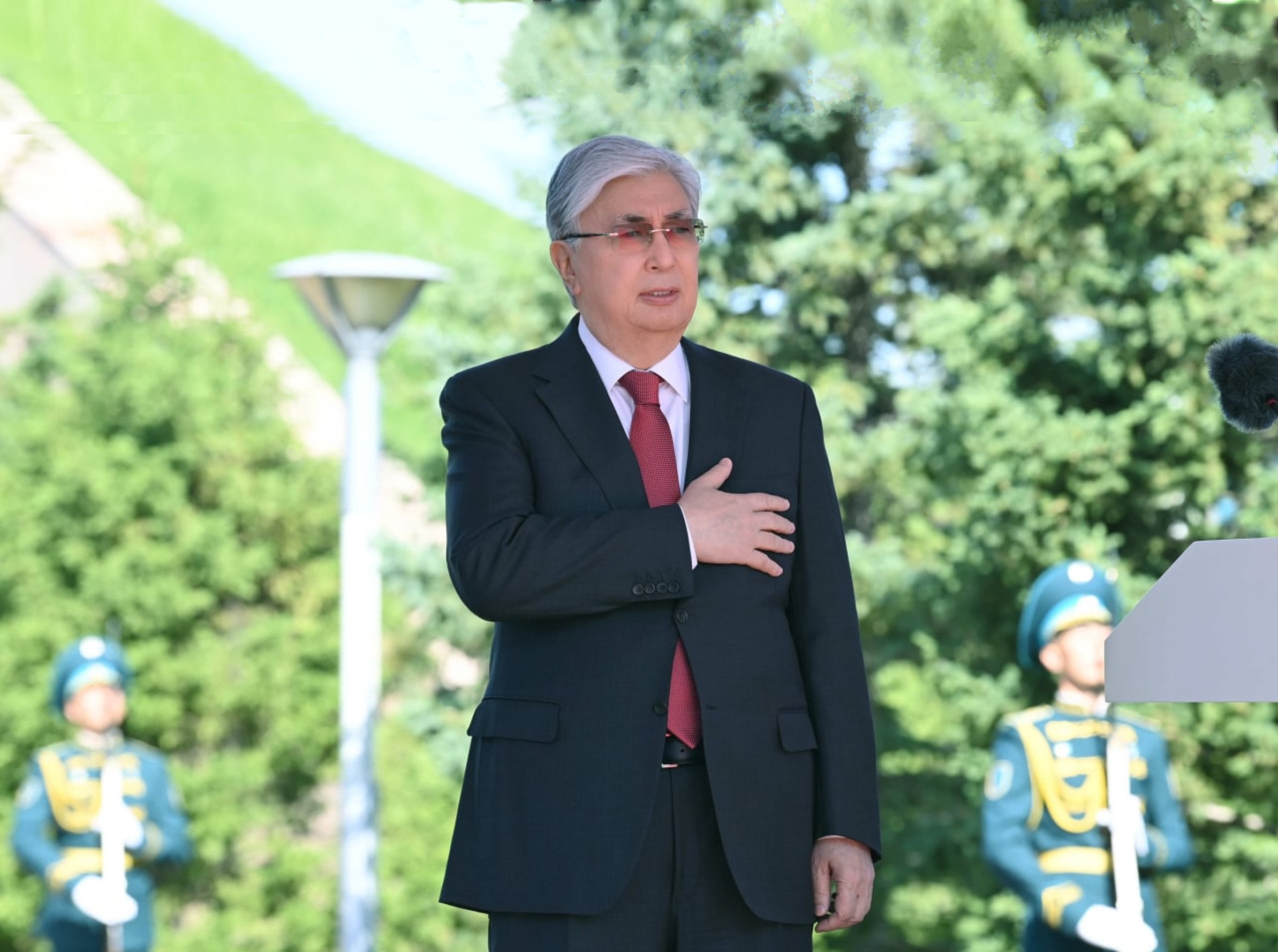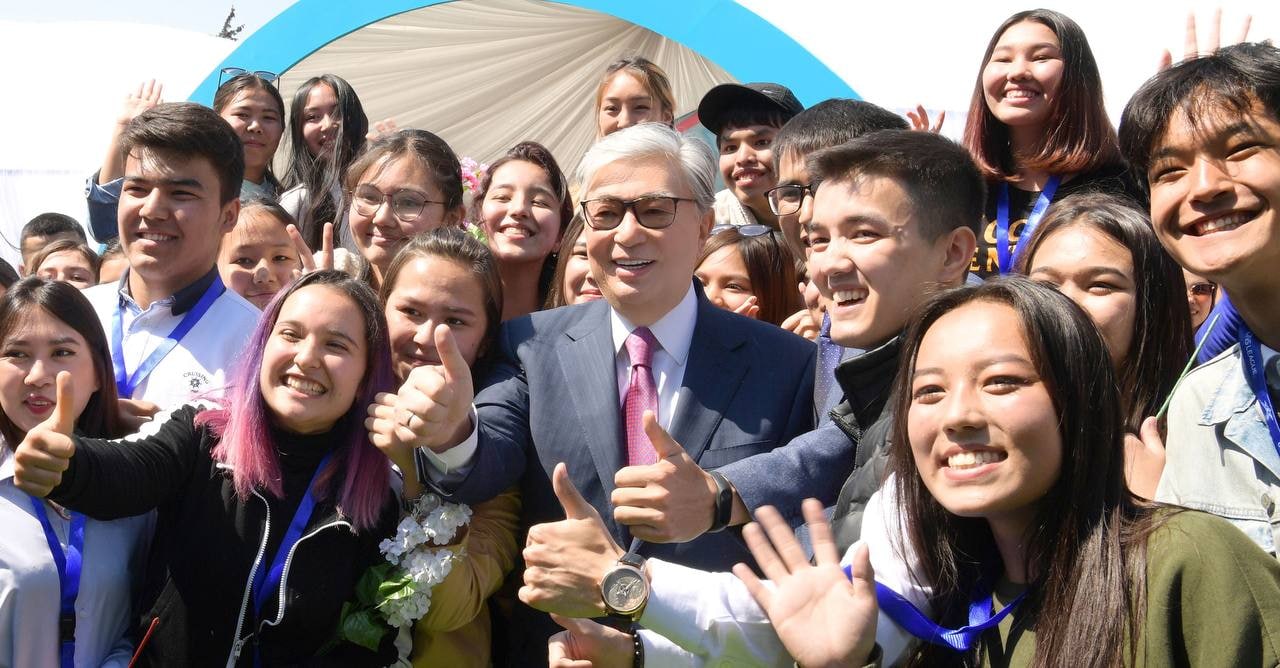Editor’s note: As Kazakhstan approaches the presidential elections on Nov. 20, The Astana Times will contribute a series of articles in the format of reviews and interviews providing an outlook into the electoral programs of each of the candidates.
ASTANA – The campaign platform of incumbent President and people’s coalition candidate Kassym-Jomart Tokayev is based on three principles – a fair state, a fair economy, and a fair society.

“We will build a strong government that respects the principles of democracy, the rule of law and equality,” said Tokayev. Photo credit: Official website of the candidate.
Tokayev announced his election campaign program titled a “Fair Kazakhstan – For All and For Everyone Now and Forever” on Oct. 26.
The people’s coalition nominated Tokayev after collecting 399,809 signatures from people in 17 regions and 3 cities of republic significance, almost three times more than required. The people’s coalition was established on Oct. 6, and has united more than 30 non-governmental organizations and parties.
After the announcement, Tokayev said he intends to initiate fundamental changes in the economy, social sphere, and regional policy with a mission to build a Fair Kazakhstan.
“The reforms will be an effective response to the aspirations of the people and will ensure our resilience to the extreme pressure of external challenges,” he said.
The election program prioritizes solving the problem of the shortage of clean water, and the strengthening of food security. The government will invest more in the education of the younger generations.
“We will revive the agricultural sector so that living and working in rural areas is no less prestigious than in big cities. Farmers will become a new driving force for the development of our economy,” said Tokayev.

More than 450 people from all over Kazakhstan, being leaders in their fields, actively participate in the campaign, and explain the election program of Tokayev, reported the headquarters of the people’s coalition.
Tokayev promised to continue the country’s foreign policy course aimed at protecting national interests, strengthening mutually beneficial cooperation with all interested states, and ensuring international peace and security.
Tokayev was born on May 17, 1953 in Almaty and grew up in a family of career intellectuals. He graduated from the Moscow State Institute of International Relations in 1975 and began his career as a duty assistant in the Ministry of Foreign Affairs of the USSR. He worked as a diplomat to the Soviet Embassy in Beijing, where he served until 1991 as a second secretary, first secretary and eventually counselor. In 1992, Tokayev became the Deputy of the First Minister of Foreign Affairs of Kazakhstan. Then he served as the Minister of Foreign Affairs for 10 years over two terms (1994-1999 and 2003-2007). Tokayev then worked as Deputy Prime Minister and later as Prime Minister (1999-2002).
Tokayev headed the Senate of the Parliament for more than 10 years, then he worked as the Deputy Secretary-General of the United Nations, head of the European Office of the United Nations in Geneva.
In 2019, Tokayev won the presidential election with a 70.96 percent majority and was elected as the second President of Kazakhstan.
Basic principles of Tokayev’s platform
According to Tokayev’s platform, the first principle provides for the continuation of political modernization, the introduction of professional state and corporate governance. Не states decisions should be made in “a balanced, open and fair manner, and most importantly by taking into account the interests and demands of society.”

Tokayev said that the support of the people will be the main factor in achieving the goals of his election program.
The fair state principle seeks to achieve the creation of an effective state apparatus, objective and independent courts, the protection of citizens’ rights, and the protection of the country.
Tokayev plans to continue a balanced foreign policy aimed at the securing of national interests, and developing mechanisms to ensure regional security. Kazakhstan will increase its contribution to strengthening the system of international security within the framework of the UN.
The second principle seeks to build an economy based on a balance of interests and the well-being of citizens, businesses and the state, as well as the efficient use of the country’s resources.
“Oligarchic capitalism in Kazakhstan has generated social inequality and an imbalance of the domestic market. The unscrupulous activity of monopolists hindered the growth of real incomes of citizens, drove them into a ‘poverty trap’ and did not allow the middle class to strengthen. We will radically change the model of economic development,” said Tokayev.
The reforms will be implemented to achieve a competitive agricultural sector and promote sustainable rural development, provide open transport corridors and logistics, provide reliable energy and digital opportunities. Digital transformation also includes the creation of at least 150,000 jobs in IT companies and bringing the contribution of digital technologies to the economy up to 1 percent of the country’s total GDP.
The third principle aims to create a developed social infrastructure and ample opportunities for the realization of human potential.
“We will build a healthy, educated, hardworking, socially protected and patriotic society… The support of the people will be the main factor in achieving these goals. The more citizens will be involved in the implementation of the planned transformations, the faster we will get the result. I am sincerely interested in seeing the lives of Kazakhstan citizens improve. It is important that this aspiration is shared by the whole nation,” said Tokayev.
A fair social policy is the building block of the Fair Kazakhstan platform. Financing for the construction and modernization of kindergartens, schools, hospitals, cultural and sports facilities, as well as targeted assistance will be provided.
The major points of the third principle include:
– the social investments will work as direct investments into human capital
– the morbidity of citizens will be reduced and life expectancy will be increased as part of reforms in healthcare
– the National Fund will transfer 50 percent of the annual investment income to the National Fund for Children initiative (to the savings accounts of children until they turn 18)
– a new concept and a law on youth policy will be adopted
Tokayev reiterated that the support of the people will be the main factor to achieve these goals.

